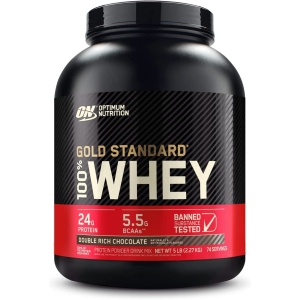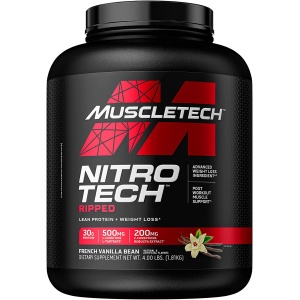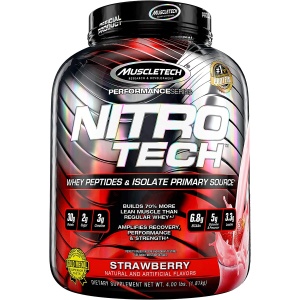Dr. Gabrielle Lyon on “Muscle as the Organ of Longevity”
by Nils Osmar. May 21, 2022
An interesting interview with Dr. Gabrielle Lyon.
- Lyon has made the point repeatedly that “Muscle is the organ of longevity.”
- Dr. Lyons’ recommendations are very different from the recommendations of low-protein luminaries like Dr. Valter Longo and Dr. David Sinclair. She views it as misguided to lower our protein intake if our goal is longevity.
- In this interview, she responds explicitly to Dr. Valter Longo’s “longevity diet” and why it may be a mistaken approach.
Some quotes from the interview:
- “Muscle is the organ of longevity.”
- “We’re not over-fat, we’re under-muscled.”
- “Quality of life matters as much as lifespan.”
- “But there are a lot of myths about dietary protein, none of which have been validated. Based on randomized, controlled human studies. The RDA for protein is set too low (0.8 gram/kg). This is the minimum needed, not the maximum. It’s a mistake to view this as the maximum. Nearly double this amount is more optimal.”
- “mTOR1 is in all tissues. mTOR is a growth-promoting pathway. It’s stimulated in muscle by leucine. mTOR is in skeletal muscle, the pancreas and the brain. Groups promoting going vegetarian will say that stimulating this pathway is bad. mTOR activation in skeletal muscle is sensitive to leucine… this is necessary for muscle protein synthesis…. if you don’t stimulate the mTOR pathway, you will not build the muscle you need for survivability and longevity.”
- “Muscle is a nutrient sensor. If we reduce protein intake during our 20s or 30s and go on a lower protein diet, it doesn’t get easier to build muscle in your 50s or 60s, it gets harder.”
- “If we get injured, what will save us is our muscle. (Higher protein diets) are associated with greater survivability.”
- “Protein is essential. There’s never been any evidence to support higher levels of protein having any negative effect.”
- “Obesity is a symptom. It’s not at the root. If you have healthy skeletal muscle, you’ll be metabolically healthy.”
- “Muscle makes up 40 percent of your body. It’s the largest organ system in the body.”
- “One of the leading indicators of old age is grip strength. That’s one of the predictors of death.”
- “For a woman, 65 or older, if she falls, there’s a 50% chance she’ll never walk again. There’s an extreme risk of death. There are tragic things that happen if you don’t address skeletal muscle mid-life.”
- “There’s a natural decline in skeletal muscle as we age.”
- “Skeletal muscle senses protein… but the ability to do this declines as we age.”
- “Obesity is a disease of skeletal muscle. Insulin is necessary to move glucose out of the cells into the blood.”
- “Skeletal muscle is at the focal point of metabolic regulation. Insulin resistance starts in skeletal muscle first.”
- “People have been arguing about nutrition science since the 1800s.”
- “There are many randomized controlled styles that support eating more dietary protein, not less.”
- “We keep hearing that protein is bad for the planet, bad for longevity, bad for your health… the science does not support this point of view.”
- Lyon recommends aiming to consume 1 gram of protein per pound of body weight, and eating your protein before being concerned with other macronutrients.
- “In wartime, injured soldiers given higher protein had a 50% improvement in the time it took to heal.”‘
- :”Growth hormone and IGF1 are not negative… the idea that IGF1 is a negative influence (on health and longevity) is mistaken.”
- “The average woman eats 75 grams of protein a day. The average man eats 100 grams a day. The advice to eat less than that is catastrophic.”
So what to do?
Obviously, opinions differ on the points Lyon is making. Some people believe fervently that Dr. Valter Longo is right, that lowering our protein intake and eating less animal-based food (and lower leucine) is the path to longevity. They point out that AMPK activation is the longevity pathway, and believe, like Longo, that we must lower our protein intake in order to activate AMPK and dampen the activation of mTOR.
Others believe that Dr. Gabrielle Lyon is right that we need to focus on getting adequate protein.
One thing which Lyon does not address is fasting.
For those who choose to follow Dr. Lyon’s recommendations and eat more, not less, protein, there are other ways to activate the AMPK pathway without cutting our intake of protein below the RDA. One (which I’m currently following) is to alternate between eating high protein meals and fasting. I’m currently fasting either 24 or 36 hours a day, twice a week.
Here you have a few good options to help with your protein intake:
- Health Supplements
Gold Standard Whey Protein
- Health Supplements
Legendary Foods 20 gr Protein Pastry
- Health Supplements
Magic Spoon Cereal – Fruity 4-Pack of Cereal
- Health Supplements
MuscleTech Nitro-Tech Ripped | Lean Whey Protein Powder/ Isolate
- Health Supplements
NitroTech Protein






